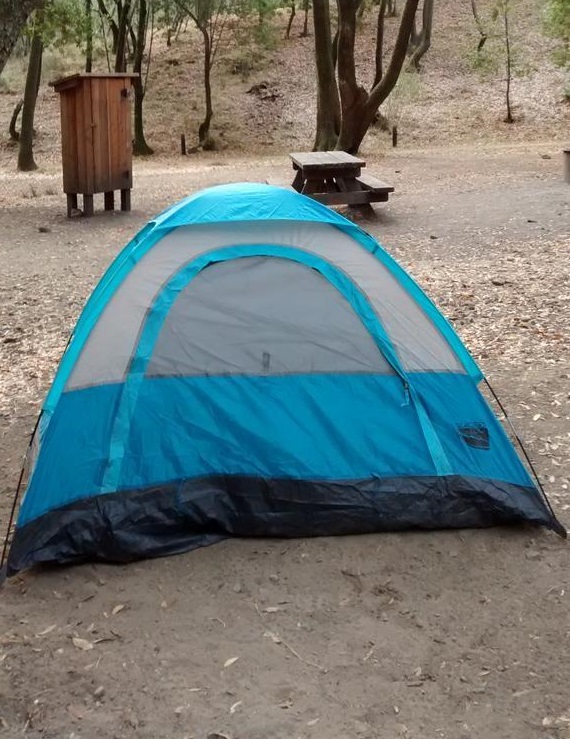Last week, I was in the Bay Area on some business travel. In my real life, I’m the founder of a tech startup. We’re not yet funded, so my travel budget is usually somewhere in between sleeping in my car and tent camping. I figured I could probably couch surf on my last trip, but that didn’t end up working out for most of the nights. I did manage to couch surf for two nights, but I also tent camped for a night and ended up in hotels, booked through Priceline, for two nights. For my Priceline room nights, the actual amount that Priceline paid was unintentionally leaked to me. This is normally very closely held information so it’s nice to get a rare inside look at the data.
So, a few words about Priceline, just so you know what I’m talking about and why this is special. Priceline sells hotel rooms through a number of channels. You can make a traditional reservation at the normal, published rate. Priceline receives a commission for handling the reservation just like any other travel agency. They also offer “express deals,” which allow you to choose a hotel by price, date, zone, and star level, with the name of the hotel revealed after you select a specific one. This works pretty much the same way as Hotwire, another popular “opaque travel” site. The best deals in the hotel business, however, are through Priceline’s “name your own price” offers. These work pretty much the same way as “express deals,” but you bid for a room and hotels within the zone can choose to accept your offer or not. In all cases, the amount that you actually pay bears little resemblance to what was either bid or advertised. Taxes and fees are lumped together and added on at the very end (just before you pay), which can inflate your bill by 20% or more. It’s a shady tactic, but just about everyone does this for hotel rooms.
When you use the “name your own price” method, I found out that the actual amount being “bid” to the hotel isn’t the same as you bid on Priceline. It’s actually a lower price. I was able to obtain data proving this in two cases (although it was provided to me inadvertently). For two different Bay Area rooms in separate properties on separate dates, Priceline pocketed about $10 per room night and refused bids that would have resulted in a lower profit. I still saved a lot, but less than I expected.
For the first Priceline room night I booked, my winning bid was $60. The actual price I was charged, after my bill was larded up with taxes and fees, was $76.21. However, the hotel made an error and revealed the price that they billed Priceline. So, I was able to see that Priceline actually paid $65.88 for the room. Their profit on this room was $10.33. It’s worth pointing out that this particular hotel was selling its cheapest rooms for $129 per night plus tax, so the savings were still substantial. However, the hotel was nearly empty and really needed to sell the room. Given how my bidding was structured, Priceline could have sold me the room at a $50 and $55 bid. They held out until my bid was $60, guaranteeing themselves a minimum profit. Priceline thus demonstrated that it would have been willing to let last-minute room inventory spoil rather than selling it at a reduced profit.
For the second Priceline room night I booked, the results were nearly identical. I ended up with a $55 winning bid, which was unscrupulously inflated to a total of $69.64. The amount that Priceline was actually billed by the hotel, in data inadvertently leaked to me, was $61.56. So, in this case, Priceline’s profit was $8.08, and I bid for the same room–in the same zone–at $50 which would have turned a $3.08 gross profit.
So, how much is the minimum gross profit Priceline will accept for a name-your-own-price room night? At least based on my experience, it’s more than $5.33 and probably a little less than $8.08. For a single-night booking, this is actually a pretty slim margin. Priceline, after all, has to pay all of the costs of booking the room and processing your credit card. Still, it’s a little higher than I expected, and finding this data has encouraged me not to bid in even $5 increments. If I think I’m close to a winning bid, I’ll more likely increment my bids by $2 or $3 rather than $5.
Part of the value proposition to hoteliers in listing with Priceline is that it’s a good way to liquidate last-minute unsold inventory, albeit at a steep discount. Priceline, however, has demonstrated a willingness to allow inventory to spoil rather than to sell it at an (in its view) unacceptably low margin. It’d be interesting to know whether Priceline’s contracts obligate it to accept break-even bids in order to help its partners unload stale room inventory, and how much this actually is (bearing in mind Priceline’s operating costs). If not, hoteliers would be wise to insist upon break-even or better sales when it comes to any “name-your-own-price” sites.
You might be asking at this point “How was this data leaked?” I’m not going to go into details, because this would probably get the hotels involved in trouble. I’m also hoping that more data will continue to leak so I will have more points of reference in order to formulate better bids. I will say that there were no hacks or shenanigans involved. The information was accidentally leaked to me in both cases, and this probably happens fairly often; the difference with me is that I actually knew what it meant.

